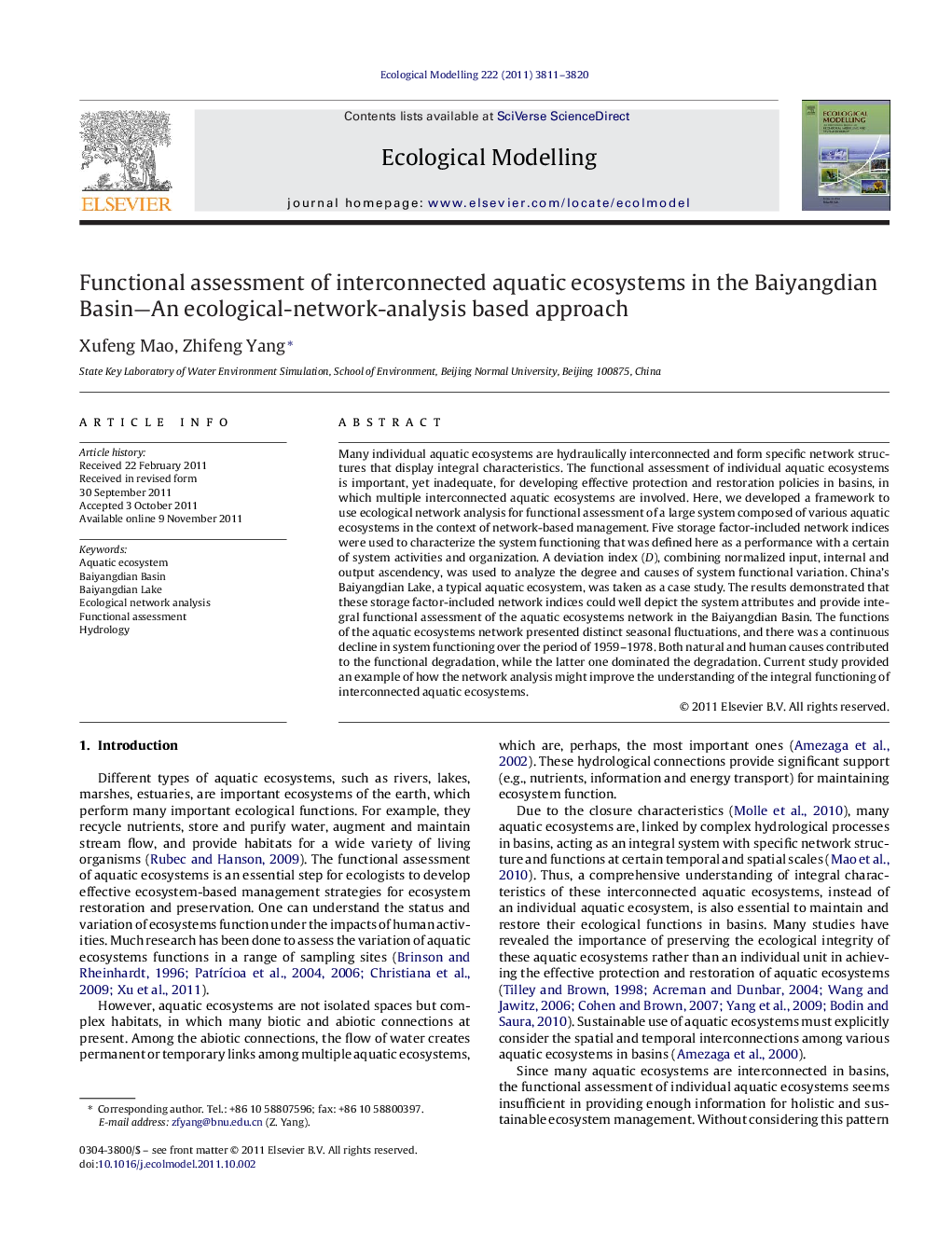| Article ID | Journal | Published Year | Pages | File Type |
|---|---|---|---|---|
| 4376731 | Ecological Modelling | 2011 | 10 Pages |
Many individual aquatic ecosystems are hydraulically interconnected and form specific network structures that display integral characteristics. The functional assessment of individual aquatic ecosystems is important, yet inadequate, for developing effective protection and restoration policies in basins, in which multiple interconnected aquatic ecosystems are involved. Here, we developed a framework to use ecological network analysis for functional assessment of a large system composed of various aquatic ecosystems in the context of network-based management. Five storage factor-included network indices were used to characterize the system functioning that was defined here as a performance with a certain of system activities and organization. A deviation index (D), combining normalized input, internal and output ascendency, was used to analyze the degree and causes of system functional variation. China's Baiyangdian Lake, a typical aquatic ecosystem, was taken as a case study. The results demonstrated that these storage factor-included network indices could well depict the system attributes and provide integral functional assessment of the aquatic ecosystems network in the Baiyangdian Basin. The functions of the aquatic ecosystems network presented distinct seasonal fluctuations, and there was a continuous decline in system functioning over the period of 1959–1978. Both natural and human causes contributed to the functional degradation, while the latter one dominated the degradation. Current study provided an example of how the network analysis might improve the understanding of the integral functioning of interconnected aquatic ecosystems.
► We introduce ecological network analysis for functional assessment of multiple interconnected aquatic ecosystems. ► The Baiyangdian Basin in North China is selected as the study area to test method applicability. ► Results indicate system encountered continuous functional degradation over the study period. ► Human causes dominate the functional degradation gradually.
